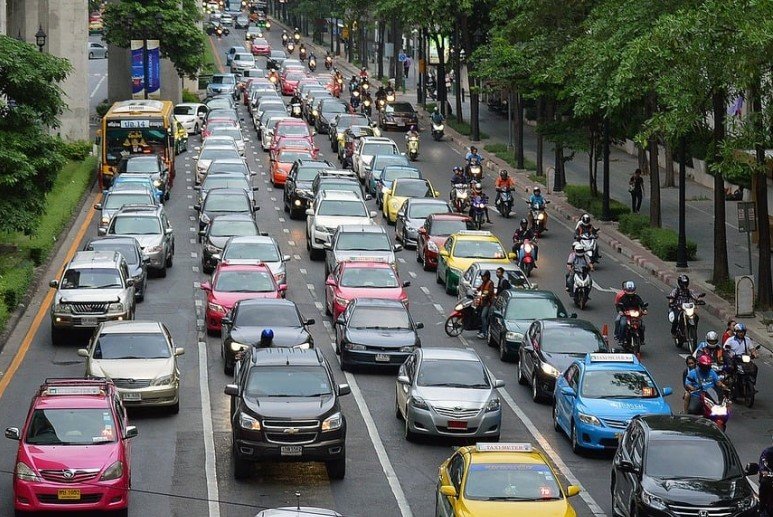A deadly traffic jam in Madhya Pradesh turned tragic. But it’s the response from the National Highways Authority of India that’s really got people talking — and fuming.
The Agra–Mumbai Highway was choked for nearly two full days this week. Forty hours of honking, heat, and helplessness on the Indore–Dewas stretch led to the deaths of three people. Families are grieving. Motorists are livid. And now, a legal storm is brewing over what could have been avoided — if only someone had taken the job seriously.
A Cruel Gridlock and a Colder Response
It wasn’t just the standstill that left people shocked. It was what followed.
The traffic logjam, which began due to incomplete roadworks on the busy Indore–Dewas corridor, left thousands stranded without food, water, or any help from the administration. Ambulances couldn’t get through. Tempers flared. Reports say people collapsed on the highway — quite literally. Three lives were lost.
Now, after a Public Interest Litigation (PIL) reached the Madhya Pradesh High Court, the NHAI had the chance to explain itself. But its legal counsel seemed to veer far from sympathy or accountability.
“Why do people even leave home so early without any work?” the counsel allegedly told the court, as per NDTV.
No apologies. No regrets. Just a baffling deflection that turned a national tragedy into what some online are calling “bureaucratic gaslighting”.

A Mess Years in the Making
This isn’t a one-off glitch. Locals say the Agra–Mumbai Highway, especially the Indore–Dewas patch, has been in disrepair for months.
Potholes. Poor lighting. Confusing diversions. Add to that half-dug stretches with no signboards or supervision.
And the biggest culprit? Delayed construction.
While NHAI has claimed that a 10-day strike at a stone crusher unit caused the pile-up, the court shot back with a reminder: the agency had already asked for three to four months to finish the project — long before the strike ever began.
In fact, the jam wasn’t just the result of poor planning. It was a breakdown of basic public safety.
One local trucker, Ramesh Patel, who was stuck in the jam for over 28 hours, said, “There was no water, no toilets. Just dust, heat, and shouting.” He added, “One car near me had two old people. The woman fainted. The police came 5 hours later.”
Legal Heat Mounts Against NHAI
Following the tragedy, the court didn’t mince words. A scathing observation noted that the NHAI had failed in its basic duty of maintaining clear and safe roads for public use.
A legal notice has now been issued to both the Central Government and NHAI, demanding answers on:
-
The reason for the prolonged delay in roadwork
-
Failure to provide public warnings or alternate routes
-
Accountability for the deaths of three citizens
The state government, too, has come under fire for its silence and inaction during the 40-hour crisis.
“The roads are a lifeline, and this is criminal negligence,” said senior advocate Meenakshi Sharma, who’s been following the PIL closely.
Deaths That Didn’t Need to Happen
While identities of the deceased haven’t been officially confirmed, early reports suggest at least one elderly man died of dehydration after being stuck in a non-airconditioned vehicle. Another victim, a young woman, reportedly suffered a panic attack followed by cardiac arrest.
A third man collapsed after walking nearly two kilometers under the blazing sun looking for help.
“These weren’t freak accidents,” said a local NGO volunteer who was distributing water during the jam. “These were deaths by apathy.”
The Politics of Infrastructure
This incident puts the spotlight back on India’s mega highway projects — often hailed as symbols of progress, but sometimes undone by mismanagement on the ground.
A 2024 report by the Ministry of Road Transport and Highways had flagged over 180 highway stretches nationwide as “high-risk” due to incomplete construction, poor signage, and administrative lapses.
In Madhya Pradesh alone, over ₹4,000 crore worth of highway projects have missed deadlines in the past two years.
Here’s a quick snapshot:
| Project Segment | Sanctioned Budget (₹ crore) | Status | Delay (Months) |
|---|---|---|---|
| Indore–Dewas NH Project | 1,120 | Ongoing | 9 |
| Bhopal Ring Road Extension | 850 | 40% complete | 6 |
| Ujjain–Jaora Highway Upgradation | 700 | Tender floated | Pending Start |
Public Anger and Online Firestorm
As news of the NHAI’s comment spread online, outrage was swift.
Social media was flooded with reactions — from hashtags like #NHAIInsensitive to memes showing empty roads with “Don’t leave home early!” signboards.
Bollywood celebrities, opposition leaders, and even retired civil servants chimed in. Congress MP Jairam Ramesh posted: “Three people died waiting in a jam. NHAI says people shouldn’t leave early? What next — don’t breathe if the air is polluted?”
Even BJP’s own local leadership in Madhya Pradesh distanced itself from the comment, with one MLA calling it “tone-deaf and unacceptable.”
The Bigger Picture: What Happens Now?
While the government hasn’t yet issued a formal apology, sources suggest that the Ministry of Road Transport is likely to initiate a review of ongoing projects in central India.
Meanwhile, the Madhya Pradesh High Court has scheduled the next hearing for mid-July, directing NHAI to file a detailed affidavit with concrete action steps.
Citizens, however, aren’t holding their breath.
“There’s no value for human life anymore,” said Vinita Joshi, whose father was among those stuck in the jam. “They won’t fix the roads. They’ll just fix the blame.”
